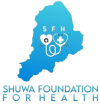The Importance of WASH: Preventing Waterborne Diseases in Conflict Zones
Explore the critical role of WASH (Water, Sanitation, and Hygiene) in preventing waterborne diseases in conflict zones. Learn how WASH initiatives save lives, improve health outcomes, and promote resilience in vulnerable communities.
Access to clean water, sanitation, and hygiene (WASH) is a fundamental human right and an essential component of public health. Yet, in conflict zones, the absence of these basic necessities leads to devastating consequences. Let’s explore why WASH is critical in preventing waterborne diseases and how effective initiatives can transform lives.
1. What is WASH? Understanding the Basics
WASH stands for Water, Sanitation, and Hygiene—three interconnected pillars that play a pivotal role in maintaining public health.
- Water ensures access to safe, clean drinking water.
- Sanitation involves proper facilities to manage human waste.
- Hygiene promotes behaviors like handwashing to prevent disease spread.
In conflict zones, where healthcare systems are fragile, WASH becomes a lifeline, preventing outbreaks of deadly diseases and saving countless lives.
2. The Impact of Conflict on Access to Clean Water and Sanitation
Conflict disrupts essential services, leaving communities vulnerable.
- Damaged Infrastructure: Wars and conflicts often destroy water supply systems and sanitation facilities.
- Displacement: Refugees and displaced persons live in overcrowded camps with inadequate WASH provisions.
- Scarcity: Limited access to clean water forces families to rely on contaminated sources, increasing the risk of waterborne diseases.
Without WASH, these communities face a vicious cycle of poor health and further vulnerability.
3. The Devastating Effects of Waterborne Diseases in Conflict Zones
In the absence of WASH, waterborne diseases flourish, with deadly consequences.
- Common Diseases: Cholera, typhoid, diarrhea, and dysentery are rampant.
- Impact on Children: Children are particularly vulnerable, with diarrheal diseases being a leading cause of death for those under five.
- Ripple Effect: Illness weakens communities, preventing children from attending school and adults from working.
The toll on health, productivity, and morale is staggering.
4. The Role of WASH in Preventing Waterborne Diseases
Effective WASH initiatives break the chain of infection, offering protection against waterborne illnesses.
- Safe Drinking Water: Providing clean water through filtration, boreholes, and tanker services.
- Sanitation Facilities: Constructing latrines and waste management systems to prevent contamination.
- Hygiene Promotion: Encouraging habits like handwashing and safe water storage through community education.
Together, these measures create a shield against diseases, especially in high-risk environments.
5. The Challenges of Implementing WASH Initiatives in Conflict Zones
While WASH is vital, delivering it in conflict zones is fraught with obstacles.
- Resource Scarcity: Limited funding and supplies hinder large-scale interventions.
- Access Issues: Reaching remote or insecure areas is often dangerous.
- Cultural Barriers: Traditional practices and resistance to change can slow adoption of WASH practices.
Overcoming these challenges requires innovation, collaboration, and resilience.
6. Successful WASH Strategies for Conflict Zones
Despite the challenges, many WASH programs have made a tangible difference.
- Community Collaboration: Engaging locals ensures sustainability and acceptance.
- Emergency Solutions: Deploying mobile water systems and temporary latrines during crises.
- Health Campaigns: Conducting awareness drives to instill hygiene practices in communities.
These strategies not only save lives but also empower communities to take charge of their health.
7. The Long-Term Benefits of WASH in Conflict Zones
Investing in WASH yields lasting benefits beyond immediate disease prevention.
- Better Health Outcomes: Reduced disease burden improves life expectancy and quality of life.
- Economic Savings: Preventing illnesses lowers healthcare costs and increases productivity.
- Community Resilience: Equipped with sustainable WASH practices, communities are better prepared for future crises.
In essence, WASH paves the way for healthier, more self-reliant societies.
8. How You Can Support WASH Initiatives in Conflict Zones
Making a difference starts with individual and collective action.
- Donate: Contribute to organizations working tirelessly to deliver WASH services in conflict zones.
- Advocate: Raise awareness and push for policies that prioritize water and sanitation access.
- Volunteer: Support local and international efforts to implement WASH initiatives.
Your involvement can bring clean water, sanitation, and hope to those who need it most.
Conclusion
The importance of WASH in conflict zones cannot be overstated. It is a cornerstone of public health, a safeguard against waterborne diseases, and a beacon of hope for affected communities. By supporting WASH initiatives, we can help create healthier, more resilient futures for those in dire need.
Together, we can turn the tide against preventable diseases and transform lives through clean water, sanitation, and hygiene.
Contact
No. 22C, Assurance Plaza, Gombole Road, Maiduguri, Borno State.
email: info@shuwafoundation.org
Tel: +234-806-355-0024, +234-701-866-9109, +234-806-239-0772
Empower Change, Donate Today
Make a difference in the lives of those in need. Support our initiatives and empower positive change through your generous donation.
